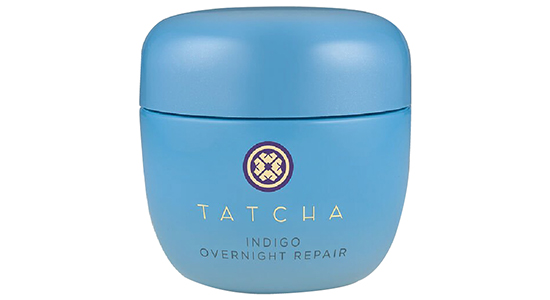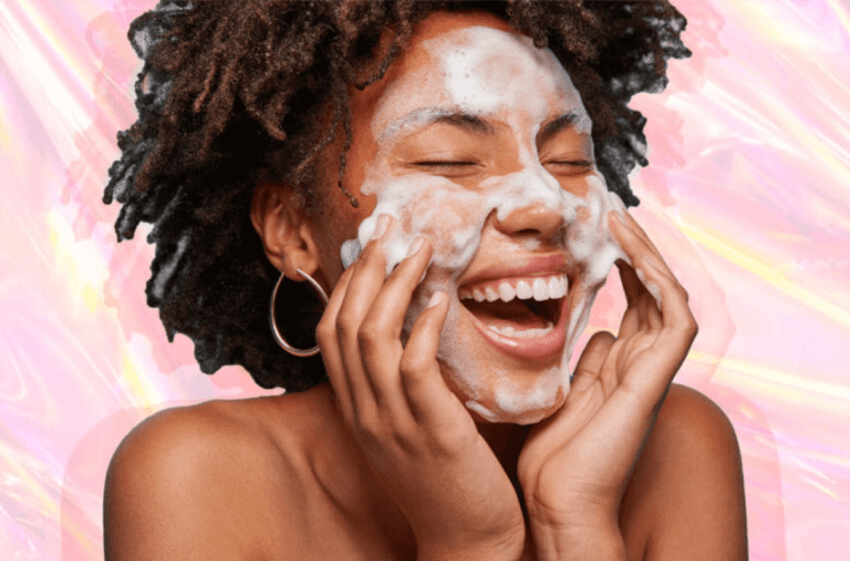Why Stress Is Blocking Your Glow & How To Fix It!

Stress is, by definition, a state of mental or emotional tension resulting from a demanding circumstance. But boy, is it SO much more than that! While most people are familiar with the feeling of being stressed and what it does to your body at that precise moment, few people are aware of how stress impacts your body AND your skin in the long term. We’re here to clear that up… basically, it sucks!
Stress wreaks havoc on your mind, body, gut, and skin, from uneven texture to stress-induced pimples. For the full lowdown on how stress impacts your skin, we spoke to doctor Dr. Jenny Liu, who works closely with cult skincare brand Tatcha. Here’s what she had to say when we quizzed her on stressed-out skin.
How Does Stress Affect the Skin?
According to Dr. Liu, “Stress, whether internal or external, generates inflammation, which increases free radical formation that impairs our skin barrier function.” She adds that “long-term stress has shown to upregulate enzymes that degrade collagen leading to premature skin aging.” When it comes to your skin tone, she even warns that “Inflammation can induce melanocytes to generate more pigment leading to dyspigmentation.” In short: stress can accelerate signs of aging, cause inflammation that can lead to breakouts and even hyperpigmentation. Oh, and it sucks the life out of your glow game.
What Can Cause Inflammation in The Body? How Can You Minimize It?
As much as you may be reluctant to learn, Dr. Liu confirms that a bad diet full of processed foods and sugar can lead to inflammation in the body. She also says that certain diseases, like eczema, psoriasis, rosacea, metabolic syndrome, and diabetes, can also lead to inflammation.
Posts You'll Love:
One of the best things to minimize stress-induced inflammation in the body is to prioritize your mental health to help combat intense periods of stress. If you’re wondering how to alleviate stress, start by checking out our guide to self-care.
Dr. Liu adds that exercising regularly and eating a well-balanced diet low in sugar and processed foods will also help lower inflammation. If you need specifics, check out these five foods that’ll help calm stressed-out skin.
What are Your Hacks for Soothing Stressed Skin?
“When skin is inflamed, I recommend cutting back on the number of products that you use daily and stick to 1 to 2 that are hydrating, soothing, calming, and fragrance-free,” says Dr. Liu. As for ingredients, Dr. Liu recommends calming antioxidants, which help repair and support the skin barrier, like oats, aloe vera, and our fave, Centella Asiatica.
 Source: Tatcha
Source: Tatcha
But her top pick? Tatcha’s Indigo Overnight Repair, $88. In fact, brand founder, Vicky Tsai, developed the formula to soothe her skin due to increased stress during the pandemic. The gentle but powerful moisturizer is formulated with plant extracts like Japanese Indigo and mondo grass that instantly calm and soothe irritated skin while balancing and strengthening the skin’s microbiome.
Dr. Liu insists that “there’s a lot of interest in studying the skin microbiome as research shows that a dysbiosis [a reduction in microbial diversity] can lead to or contribute to skin inflammation.” She adds that mondo grass helps to support healthy microbiota on the skin, thereby minimizing inflammation.
That’s not all; the overnight formula boasts a lipid complex essential for healthy skin barrier function. It also contains essential fatty acids that the skin needs to repair itself, especially at night, which is the prime time for skin repair. As for hydration, it’s enriched with hyaluronic acid to help retain moisture and keep the skin plump. Finally, it contains Hadasei 3 (green tea, rice and algae), which works like antioxidants to protect and hydrate the skin for a strengthened skin barrier. We also love the rich texture as it never feels heavy or greasy on our skin.
Does your skin act up when you’re stressed? Let us know in the comments below.
Disclaimer: Every product we review has been independently selected and tested without bias by our editorial team. We never take payment to review products; however, some brands allow affiliate links, so we may earn a commission if you purchase a product by clicking on one of our links.























Leave a comment